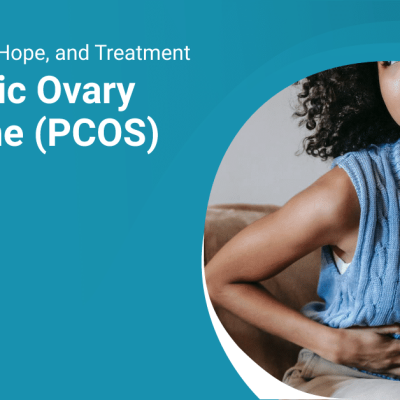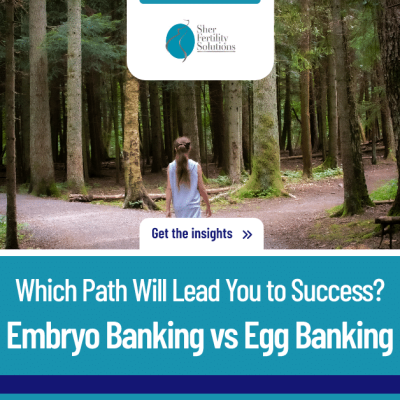Egg donation is when a woman donates her eggs for assisted reproduction or research purposes. In assisted reproduction, it usually involves using IVF technology, where the eggs are fertilized in a lab. Unfertilized eggs can also be frozen for future use. Egg donation is a form of assisted reproductive technology (ART) involving a third party.
For women who can’t get pregnant with their own eggs due to disease or low ovarian reserve, egg donation offers a realistic chance of becoming parents. It has clear benefits. First, young donors often provide more eggs than needed for a single IVF cycle, resulting in extra embryos that can be frozen for later use. Second, eggs from young donors are much less likely to have chromosomal abnormalities, reducing the risk of miscarriage and birth defects like Down’s syndrome.
Around 10%-15% of IVF procedures in the United States involve egg donation, mostly for older women with diminished ovarian reserve or for menopausal women. A much smaller percentage are performed on younger women who have premature ovarian failure or repeated IVF failures with low-quality eggs or embryos. Another rapidly emerging reason for egg donation is same-sex couples, mainly female, who want to share the experience of parenting, with one partner providing the eggs and the other receiving them.
Most egg donation in the U.S. is done through licensed egg donor agencies or frozen egg banks, where anonymous donors are recruited. Sometimes recipients seek known donors through an agency, but this is less common and often done through private arrangements. Close family members are often approached as donors. Recipients may want to know or meet their egg donor to become familiar with their physical traits, intellect, and character, but anonymous donors are more common in the U.S. Recipients using anonymous donors are usually more open about the child’s conception when disclosing to family and friends.
Donor agencies and Egg Banks provide detailed profiles and information about each donor for recipients to choose from. The recipient interacts with the egg donor program or Egg Bank in-person, over the phone, or online. After narrowing down choices, the recipient shares medical records with their IVF physician for consultation and examination. The process is facilitated by nurse coordinators who address all clinical, financial, and logistical aspects. Donor selection and matching are completed during this time.
Egg donor agencies and egg banks typically prefer donors under 35 years old with normal ovarian reserve to minimize risks. Having a history of successful pregnancies or live births gives confidence in the donor’s reproductive potential. However, due to the shortage of donors, strict criteria like previous successful pregnancies cannot always be met.
Sometimes donors may blame infertility on complications from the egg retrieval process, leading to legal actions. Evidence of trouble-free pregnancies provides comfort to the egg donor program when selecting a donor.
Screening Egg Donors
Genetic Screening: Many egg donor programs now use genetic screening panels to test for various genetic disorders. They follow the recommendations of the American Society of Reproductive Medicine (ASRM) and screen prospective donors for a host ( a panel) of conditions such as sickle cell trait or disease, thalassemia, cystic fibrosis, and Tay Sachs disease. About 90% of programs offer consultation with a geneticist.
Psychological/Emotional Screening: Recipient couples value compatibility with their chosen egg donor in terms of emotions, physicality, ethnicity, culture, and religion. Psychological screening is important in the United States. Since most donors are anonymous, it’s essential for the donor agency or IVF program to assess the donor’s commitment and motivation for providing this service. Some donors may not cope with the stress and stop their stimulation medication without informing anyone, causing the cycle to be canceled.
Donor motivation and commitment need to be assessed carefully. Recipients in the U.S. often consider the “character” of the prospective egg donor as significant, believing that flaws in character may be genetically passed on. However, character flaws are usually influenced by environmental factors and unlikely to be genetically transmitted.
Donors should undergo counseling, screening, and selective testing by a qualified psychologist. If needed, they should be referred to a psychiatrist for further evaluation. Tests like the MMPI, Meyers-Briggs, and NEO-Personality Indicator may be used to assess personality disorders. If significant abnormalities are found, the prospective donor should be automatically disqualified.
When choosing a known egg donor, it’s important to ensure that she is not coerced into participating. Recipients considering a close friend or family member as a donor should be aware that the donor may become a permanent and unwanted participant in their new family’s life.
Drug Screening: Due to the prevalence of substance abuse, we selectively perform urine and/or serum drug testing on our egg donors.
Screening for Sexually Transmitted Diseases (STDs): FDA and ASRM guidelines recommend testing all egg donors for STDs before starting IVF. While it’s highly unlikely for DNA and RNA viruses to be transmitted to an egg or embryo through sexual intercourse or IVF, women infected with viruses like hepatitis B, C, HTLV, HIV, etc., must be disqualified from participating in IVF with egg donation due to the remote possibility of transmission and potential legal consequences.
Prior or existing infections with Chlamydia or Gonococcus suggest the possibility of pelvic adhesions or irreparably damaged fallopian tubes, which can cause infertility. If such infertility is later attributed to the egg retrieval process, it can lead to litigation. Even if an egg donor or recipient agrees to waive legal rights, there is still a potential risk of the offspring suing for wrongful birth later in life.
Screening Embryo Recipients
Medical Evaluation: Before starting infertility treatment, it’s important to assess a woman’s ability to safely carry a pregnancy and give birth to a healthy baby. This involves a thorough evaluation of cardiovascular, hepatorenal, metabolic, and reproductive health.
Infectious Screening: It is crucial to screen embryo recipients for infectious diseases. If the cervix is infected, introducing an embryo transfer catheter can transmit the infection to the sterile uterine cavity, leading to implantation failure or miscarriage in the early stages of pregnancy.
Immunologic Screening: Some autoimmune and alloimmune disorders can affect the success of implantation. To prevent treatment failure, it is advisable to evaluate the recipient for immunologic implantation dysfunction (IID) and in some cases, test both the recipient and sperm provider for alloimmune similarities that could affect implantation.
Disclosure and Consent: Full disclosure about the egg donation process, including medical and psychological risks, is necessary. Sufficient time should be dedicated to addressing questions and concerns from all parties involved.
It’s important for all parties to seek independent legal advice to avoid conflicts of interest. Consent forms are reviewed and signed by the donor and recipient independently.
Types of Egg Donation
Conventional Egg Donation: This is the standard process for egg donor IVF. The menstrual cycles of the donor and recipient are synchronized using birth control pills. Both parties undergo fertility drug stimulation, allowing for precise timing of fresh embryo transfer. The success rate for pregnancy through this method is over 50% per cycle.
Donor Egg Bank: In this approach, eggs from young donors are frozen and stored for later use in IVF and embryo transfer. Frozen egg banks offer access to non-genetically tested eggs. While it provides convenience, there are minimal financial benefits.
Through an electronic catalogue, recipients can select and purchase 1-5 frozen eggs. These eggs are fertilized through intracytoplasmic sperm injection (ICSI), and up to 2 embryos are selectively transferred, resulting in a 30-40% pregnancy rate without the risk of multiple pregnancies. This method reduces the cost, inconvenience, and risks associated with conventional fresh egg donor cycles. It is important for the recipient couple to be made aware that frozen eggs are slightly less likely to result in viable embryos as compared to fresh eggs and that the pregnancy rate using frozen eggs is also somewhat lower.
Preimplantation Genetic Screening/Testing for Aneuploidy (PGS/PGT)
The use of PGS/PGT to select embryos for transfer in IVF with egg donation is a topic of debate. Since most egg donors are under 35 years old, about 60-70% of embryos created from their eggs will likely have the correct number of chromosomes (euploid). This means that transferring up to two “untested” embryos from these donors should result in similar pregnancy rates compared to using PGS/PGT for embryo selection. However, it may in the future, become possible and practical to perform PGS/PGT on eggs for selective banking in the future. This could lead to improved success rates using banked eggs that have been tested for chromosomal abnormalities.
Egg Donation with Frozen Embryo Transfer (FET): Advances in embryo cryopreservation technology have made FET cycles a preferred method for many fertility specialists and patients. Whether or not embryos have undergone PGS/PGT testing, they are frozen as blastocysts and transferred in a subsequent FET cycle. This approach is more convenient, less complicated logistically, and can significantly improve the chances of successful pregnancy.
Cost of Egg Donation in the United States
The cost of an egg donor cycle involves various expenses. The average fee paid to the egg donor agency per cycle is typically between $2,000 – $8,000. Additional costs include psychological and clinical pre-testing, fertility drugs, and donor insurance, which range from $3,000 to $6,000. The medical services for the IVF treatment cycle can cost between $8,000 and $14,000. The donor stipend can vary widely, ranging from $5,000 to as high as $50,000, depending on the specific requirements of the recipient couple and supply-demand factors. Consequently, the total out-of-pocket expenses for an egg donor cycle in the United States ranges from $15,000 to $78,000, making it financially challenging for most couples in need of this service.
To address the growing gap between the need for affordable IVF with egg donation, various creative approaches have emerged. Here are a few examples:
- Egg Banking: As mentioned earlier, egg banking is a method where eggs are preserved and stored for future use.
- Egg Donor Sharing: This approach involves splitting the cost between two recipients, who then share the eggs for transfer or freezing. However, the downside is that there may be fewer eggs available for each recipient.
- Egg Bartering: In this scenario, a woman undergoing IVF can exchange some of her eggs with the clinic in return for a reduction in her IVF fee. This arrangement can be problematic because if the woman donating her eggs fails to conceive while the recipient does, it may cause emotional distress and potential complications in the future.
- Financial Risk Sharing: Some IVF programs offer a refund of fees if the egg donation is unsuccessful. This option is preferred by many recipient couples as it helps to spread the financial risk between the providers and the couple.
Moral, Legal, and Ethical Considerations
In most States in the USA, the “Uniform Parentage Act” protects the recipient couple from legal disputes relating to parental claims by the donor. This “act” which states that the woman who gives birth to the child is legally recognized as the mother has generally prevented legal disputes over maternal custody in cases of IVF with egg donation. While a few states have less clear laws on this matter, there have been no major legal challenges so far.
The moral, ethical, and religious implications of egg donation vary and greatly influence the cultural acceptance of this process. In the United States, the prevailing attitude is that everyone is entitled to their own opinion and should have their views respected as long as they don’t infringe on the rights of others.
Looking ahead, there are important questions to consider. Should we cryopreserve and store eggs or ovarian tissue from a young woman who wishes to delay having children? Would it be acceptable for a woman to give birth to her own sister or aunt using these stored eggs? Should we store ovarian tissue across generations? Additionally, should egg donation primarily be used for stem cell research or as a source of spare body parts? If we decide to pursue these avenues, how do we ensure proper checks and balances? Are we willing to go down a slippery slope where the dignity of human embryos is disregarded, and the rights of human beings are compromised? Personally, I hope not.
We hope this blog has given you valuable insights on egg donation. Considering egg donation in NYC? At Sher Fertility Solutions, we’re here to provide personalized, compassionate care for your unique journey. If you’re ready to discuss your options or have more questions about Egg Donation, don’t hesitate to reach out to us. Take the first step today—book a consultation with our team to get started.








